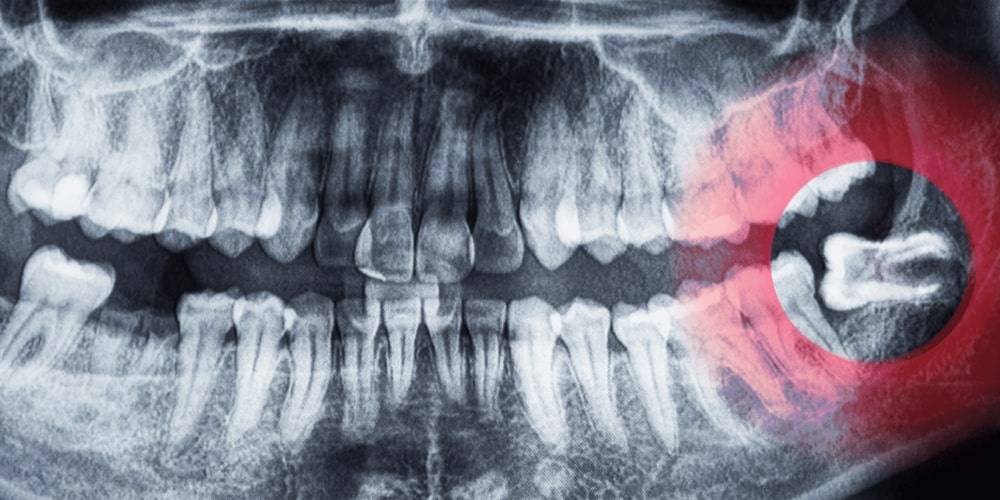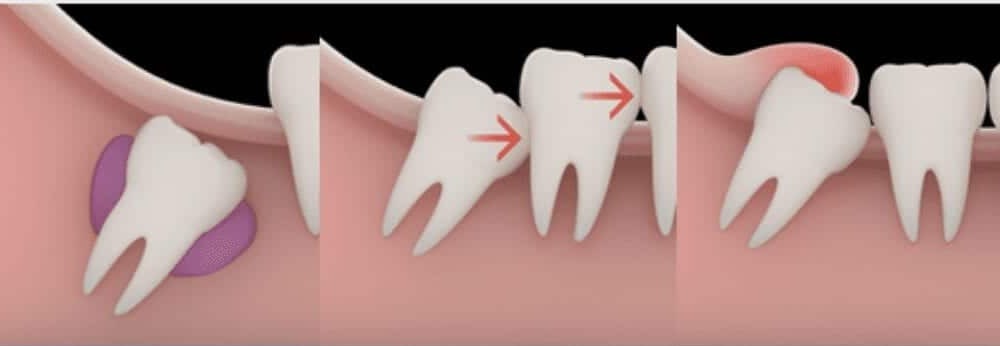
Wisdom Tooth Pain: What Should You Do?
Wisdom teeth, commonly referred to as the “20-year molars,” usually start to emerge during young adulthood. These teeth are called “20-year molars” because they typically start to come in around the age of 20. Various factors, such as available space in the jaw, the angle of the teeth, and infection, can cause wisdom tooth pain and discomfort. In this blog post, we have compiled what needs to be done and what you may be curious about concerning wisdom tooth pain.
What are the signs that a wisdom tooth is coming in?
Severe pain radiating to the jaw, ear, and neck area can be a sign that a wisdom tooth is emerging. Head and throat pain, swelling of the lymph nodes, are also indicators that these teeth are coming in. Another symptom is bad breath in the mouth.
When do they come in?
There is no single answer to this question. The emergence of teeth varies from person to person due to genetic and external factors. Generally, wisdom teeth are seen between the ages of 17-21. In some people, they may emerge between the ages of 25-30. Not everyone has wisdom teeth; some people never develop them for reasons that are not entirely understood.
Do I have to get my wisdom tooth extracted?
Some wisdom teeth remain impacted without causing any issues or emerge in the mouth without any problems. If proper oral care is maintained, these teeth can function normally for biting. Some impacted wisdom teeth also remain in the jaw for many years without causing pain or other issues. Teeth that do not cause discomfort or pain do not need to be extracted.
If you do not get it extracted…
In people with a small jaw structure, there is generally not enough room for these teeth. Leading to impacted or partially impacted wisdom teeth. Because of the narrow area, the wisdom teeth can’t emerge fully. Food particles accumulate between the gum and the tooth, causing decay if it is above the gum, and infection if it is below. Inflammation of the surrounding gum tissue causes the gums to swell, leading to swelling, abscesses, and pain.
Impacted wisdom teeth trying to emerge can cause pain in the ear, neck, and throat. Rarely, swelling of the lymph nodes can also be observed. You should consult a physician if you encounter such situations.

Wisdom teeth can collect infection, put pressure on adjacent teeth, and cause food particles to become trapped
Do impacted wisdom teeth damage other teeth?
The major concern is that these teeth can put pressure on adjacent teeth due to their emergence position. While trying to emerge, they can damage the roots of the second molars. Trapped food particles underneath the gum tissue covering partially emerged wisdom teeth are also common issues. Poor cleaning of these areas can lead to decay in neighboring teeth as well.
These teeth, while trying to emerge, can also cause root resorption or various changes in the jawbone.
Is wisdom tooth surgery difficult?
Wisdom tooth surgeries are conducted under local anesthesia, similar to other surgical operations. Therefore, the patient does not feel any pain or discomfort during the process. Experienced and specialized dentists generally ensure that the patient does not face any difficulties. Extractions performed by less experienced dentists can take longer and carry a higher risk of complications.
Post-surgery facial swelling
A frequently asked question is about potential facial swelling after the surgery. Not all wisdom tooth extractions lead to swelling. However, especially for impacted and difficult-to-access teeth, the likelihood of post-operative swelling increases. Therefore, applying a cold compress post-surgery is critical for minimizing swelling.
Numbness in the lip after wisdom tooth extraction
Impacted wisdom teeth, particularly in the lower jaw, can be located near the mandibular nerve. This proximity can lead to numbness in specific areas of the lip after extraction. It is highly recommended to take a three-dimensional tomography to determine the proximity of the tooth to the nerve before extraction. Advanced tomography devices in our clinic allow for the anatomical evaluation of the teeth before extraction, thus minimizing the risk of complications.
Wisdom tooth extraction prices
The cost of extracting a wisdom tooth varies depending on the general position, location, and other factors. At our clinic, the three-dimensional tomography for wisdom teeth is free. Extractions of impacted and difficult-to-access teeth are generally performed by oral surgeons. While the cost of extracting fully emerged wisdom teeth is similar to standard tooth extractions. You can get pricing information after an examination by our oral, dental, and jaw surgeons.
For detailed information about wisdom tooth extraction prices, further information about the process, or to be examined at our clinic, you can contact us by filling the form below.
If you’re curious about what to avoid after a tooth extraction, you can visit our blog post titled “What Not To Do After A Tooth Extraction.”
